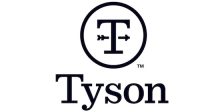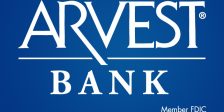
Tyson Foods recently secured $1 billion in senior unsecured notes offered to the investment community and rated investment grade — Baa2 by Moody’s or BBB by Standard & Poor’s.
The Springdale-based meat said the proceeds will be used to repay a $750 million term loan due August 2020 as well as other borrowings. The $750 million loan was increased in June from $500 million, which was used to partially fund the acquisition of Tecumseh Poultry for $382 million.
Tyson Foods said it will fund its pending $2.2 billion purchase of Keystone Foods separately. That deal is expected to close in 2019.
Moody’s credit analyst Brian Weddington gave Tyson Foods a stable outlook. He notes the Baa2 rating reflects the company’s large scale and its “good and improving” segment diversity.
The rating also reflects improving profitability and stability within the company’s protein segments, which increasingly include value-added products sold through foodservice channels. This provides important diversification against high earnings volatility inherent in commodity-like portions of its protein business, Weddington noted.
The three primary meat segments of chicken, beef and pork represent about 80% of Tyson Foods’ sales, whereas the higher margin prepared foods segment is about 20%.
“These strengths are balanced against a somewhat aggressive financial policy that includes a steady pace of acquisitions and a history of heavy share repurchase activity,” Weddington noted. “In addition, the recent unexpected CEO change increases execution risk and creates uncertainty regarding a potential future shift in Tyson’s long-term strategy. Moody’s expects that the company’s financial strategy will remain balanced in support of its goal to maintain an investment grade credit profile.”
While Tyson Foods’ credit rating is investment grade, the recent Baa2 rating is nine layers below the top rating by Moody’s. Securities with the Baa2 rating are subject to moderate credit risk and considered medium grade. Moody’s said it would consider downgrading Tyson Foods’ ratings if liquidity or operating performance deteriorates. The rating agency could also consider a downgrade if debt/EBITDA is sustained above 2.75 times, or the aggregate of cash and external liquidity sources falls below $1.0 billion. At the end of June, Tyson Foods’ debt/EBITDA stood at 2.42 times, annualized for the quarter.

Likewise, Moody’s would consider upgrading the company’s ratings if it continues to improve business diversity and earnings stability. Weddington said the ratings could be upgraded if debt/EBITDA is likely to be sustained below 2.0 times and the company maintains combined cash and external liquidity sources of at least $1.5 billion.
Tyson Foods continues to generate strong operating cash flow of $1.9 billion in the third quarter ending June 30. That’s up 33% from the prior year. In late July, Tyson Foods guided down its earnings projections for the full year an average of 11.7% to a range between $5.70 and $6.00 per share.
Tyson Foods executives have said the company’s fundamentals are solid. But they face challenges on a global scale with trade policy and increased U.S. supply of chicken and pork. Tyson Foods said its fourth quarter got off to a slower start than normal but it expects the supply-demand imbalance to equilibrate in the near term.
Analyst Steve Kay, publisher of Cattle Buyers Weekly, said Tyson Foods is making big profits in its beef segment and that should help cover some of the weakness in pork and chicken.
Shares of Tyson Foods (NYSE: TSN) were trading slightly lower Monday (Oct. 1) at $58.99, down 53 cents near the closing. Tyson Foods shares have traded between $56.79 ad $84.65 during the past 52-week period. Year-to-date Tyson shares are down 17.39%.




